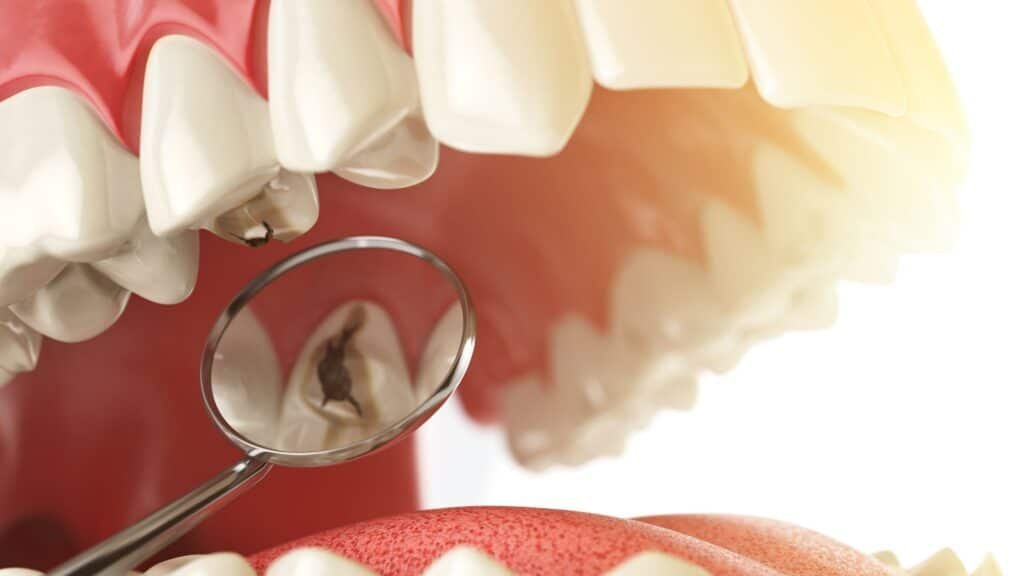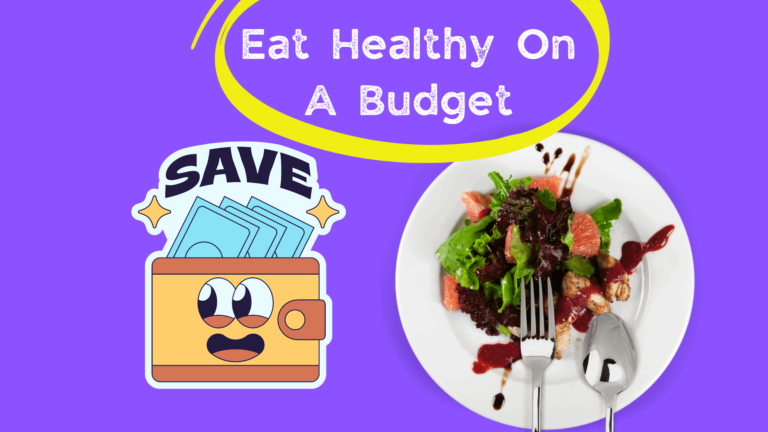Ditch the Sugar Rush: The 10 Signs of excessive sugar consumption

In a world where sugar lurks in unexpected places, our bodies often bear the silent burden of its excess. Unmasking the subtle signs of excessive sugar consumption can be the key to reclaiming your health and vitality.
Sugary treats can make life more enjoyable, but consuming too much of them is unhealthy. While moderate intake is acceptable, overindulgence may lead to difficulties. So, what occurs with excessive sugar intake?
Experts in the field of nutrition underline the need to limit one’s consumption of added sugar. Health organizations like the American Heart Association recommend that women consume no more than 25 grams of added sugar per day (6 teaspoons) and that men consume no more than 37.5 grams per day (9 teaspoons).
Consistently eating large amounts of sugar increases the likelihood that you may develop serious diseases, including heart disease and type 2 diabetes. The gut flora can be negatively impacted by consuming an excessive amount of sugar, which may then lead to pro-inflammatory consequences.
When people regularly consume large amounts of sugar, their bodies send signals for adaptation to mitigate the negative effects. To reduce the bad effects of overeating, it is important to recognize the warning symptoms that come with it.
Do you consume too many sweets?
Recommendations for maximum amounts of added sugar differ between industry groupings. The Dietary Guidelines for Americans propose restricting added sugar to a maximum of 10% of daily calories, roughly 12 teaspoons for a 2,000-calorie intake.
Whereas the American Heart Association (AHA) suggests no more than 100 calories for women, 150 for men, and children over the age of 2, which is roughly 6 teaspoons for women and children and 9 teaspoons for men, these numbers are much lower than what is commonly consumed. Both camps agree that kids under the age of two should stay away from any kind of sugary drink or snack.
Fruits and vegetables, as well as imbalanced meals high in lean protein and healthy fats, should be consumed regularly to prevent additional sugars from replacing these nutrients. Due to their high sugar content, certain vitamins, minerals, and fiber may be lacking and present themselves in unexpected ways.
Which type of sugar (or sugars) has the worst effects on the body?
All sugars are not the same. Fructose in fruits and lactose in dairy are examples of naturally occurring sugars; fructose and sucrose are examples of processed sugars commonly found in modified forms such as “high fructose corn syrup” or “table sugar” on food labels.
Compared to processed sugars, which are sourced from natural sources but significantly manipulated, natural sugars are commonly found in food products and provide minimal harmful impact when ingested in appropriate proportions.
Due to their ubiquitous use, overconsumption of these processed sugars has become unintentional. Even if it’s helpful to read food labels, the complexity comes from the fact that “added sugars” are included under carbohydrates. To further complicate matters, processed sugars may go by more than 60 different names in food products.
The Signs of excessive sugar consumption
Embark on a sugar-conscious journey and transform your health. Discover the surprising signs that indicate you’re consuming too much sugar and make informed choices for a healthier you.
1. Your blood pressure might be elevated

Certain individuals have been linked to higher blood pressure levels when they consume large amounts of sugar. Studies, including one published in Nutrients, showed a strong association between higher blood pressure levels in individuals 65–80 years old and an increasing intake of added sugar.
A spike in blood pressure could be an indication of consuming too much added sugar. Health professionals explain that added sugar raises uric acid levels in the body, which prevents the body from producing nitric oxide. “A vital function of nitric oxide (NO) is to keep blood vessels flexible. Blood pressure may rise in response to a decrease in NO levels.”
2. You can experience persistent hunger and dissatisfaction

Sugar overload is often the cause of persistent hunger and dissatisfaction because sugar-filled foods don’t provide sustained fullness. Sugar is heavy in calories but lacks vital nutrients, making you feel full for a brief while before becoming hungry again.
This results in thoughtless eating patterns and constant snacking. Overindulgence in sugar causes leptin to malfunction, which increases appetite by lowering leptin levels.
High-sugar breakfasts, which use carbs quickly, can cause mid-morning hunger. In order to counteract these effects, choosing high-fiber carbohydrates, such as oatmeal, and mixing them with proteins, such as eggs or Greek yogurt, helps prolong feeling full after breakfast.
3. It’s possible that you’re in chronic pain

According to research in the Journal of Clinical Medicine, regularly consuming an excessive amount of sugary foods and beverages can cause chronic discomfort.
The study emphasizes that excessive amounts of fat and sugar in individuals with osteoarthritis may lead to heightened levels of persistent discomfort. A study in Frontiers in Nutrition also shows that adding extra sugar can cause inflammation, which can then lead to chronic pain.
High sugar consumption may potentially be a contributing factor to chronic pain and stiffness. Given that added sugar is a widely recognized, highly inflammatory component, this is primarily attributable to the inflammatory effects it has on the body.
4. It’s possible that you put on weight

Health experts warn that eating too much sugar on a regular basis can cause weight gain. Consuming excessive amounts of sugar can interfere with metabolism and negatively impact the gut microbiota, which is crucial for controlling insulin and blood sugar levels.
The imbalance caused by excessive sugar eating must be corrected by the body’s ecology, which requires more effort and sugar ingestion. As a result, the body could feel as though it needs more sugar, which could result in increased hunger and weight gain.
Furthermore, it’s critical to recognize that foods high in sugar may not offer necessary nutrients or a sense of fullness. Added sugars are mostly empty calories; they provide energy but little nutritional value. When eaten often, foods high in added sugar have a tendency to be higher in calories and worse in nutrient quality, which may lead to weight gain.
Info: The list of common foods high in added sugars includes sodas and soft drinks, fruit juice, chocolate milk, ketchup, pre-made sauces, sports drinks, granola and cereal, canned fruit, canned soups, energy drinks, desserts, and candy. Additionally, certain items like flavored yogurt, barbecue sauce, salad dressings, commercial bread, instant oatmeal, and processed snacks often contain substantial added sugars that contribute to overall daily intake.
5. It is possible that you are having dental issues

Overindulgence in sugar may be associated with recurrent dental issues. Experts claim that sugar has a significant role in cavities and tooth decay.
Research published in Frontiers in Oral Health confirms that eating too much sugar is the main factor in dental caries, or cavities.
Sugar is also a major contributing element to the formation of dental cavities, according to the World Health Organization. This occurs when oral bacteria break down sugar, producing acids that erode tooth enamel and result in dental issues.
6. There has been some inconsistency in your energy levels

Experts warn that consuming too much sugar can have a bad effect on erratic energy levels, which are often the result of spikes in blood sugar.
Energy levels may spike and then drop if you consume a lot of sweets. Excessive sugar consumption has been associated with erratic energy levels, which may show up as hyperactivity and then exhaustion.
To properly balance blood sugar levels and reduce these oscillations, doctors recommend mixing a high-fiber carbohydrate, such as whole grains or fruits, with a source of protein. After eating, protein helps digestion slow down and stabilizes blood sugar.

Pause: Tips for reducing sugar and improving skin health:
- Cut back on processed foods and sugary drinks.
- Prefer naturally sweet fruits and vegetables over sugary munchies.
- Choose whole grains over processed ones.
- Check food labels for hidden sugar.
- Mind your portions.
- Slowly changing your diet makes it more maintainable.
7. You have an incessant desire for sweets

Constant desires for sweets may be a sign that you’re consuming too much sugar, say health professionals. High sugar consumption can develop a cycle of cravings and overconsumption due to the repeating pattern of blood sugar spikes and crashes.
Blood sugar levels can spike and collapse after eating foods high in sugar and low in key nutrients like fiber or protein.
The Glycemic Index provides some insight into this phenomenon. Foods with a high glycemic index absorb quickly into the body and cause sharp spikes in blood sugar, which in turn exacerbate cravings. Candies, soft drinks, donuts, and muffins all fall within this category. Foods with a low glycemic index have fiber, which slows digestion and has a moderating effect on blood sugar levels. Vegetables, whole grains, and legumes all fall into this category.
8.Mood Swings
High sugar intake often leads to what’s commonly referred to as a ‘sugar crash.’ This crash results in mood swings and irritability due to the body’s reaction to the glucose processed for energy.
When high-sugar foods are broken down into glucose for energy, the body releases a substantial amount of insulin to manage and transfer the glucose from the blood into the cells. This surge of insulin reduces blood glucose levels rapidly, prompting the body to release adrenaline, cortisol, and other hormones to compensate for the drop.
The adrenaline signal prompts the body to generate more glucose to elevate levels, causing fluctuating glucose levels, subsequently leading to mood swings and irritability. Furthermore, research suggests that this cycle of glucose fluctuation over time might be linked to the development of depression.
9. Sleeping Troubles and Sugar Consumption

High sugar consumption has been related to sleep problems, which include increased restlessness and less comfortable sleep. Research suggests that eating a lot of carbohydrates and sugar can alter sleep habits.
These diets typically result in a decrease in orexin, which is important for alertness, and an increase in tryptophan, a substance that encourages sleep, which causes lethargy. They might provide readily available energy, but they might also extend rapid eye movement (REM) sleep instead of deep, restorative sleep, which could cause you to wake up feeling exhausted or lethargic.
10. Skin Problems and Acne
Consuming an excessive amount of sugar can have negative consequences for your skin, especially in regards to acne. Sugar’s propensity to cause inflammation and hormonal disruptions, which in turn can cause acne and other skin problems, is due to its high glycemic index.
Increased sebum production, which sugar can cause, makes acne worse. Acne can be made worse because of the hormonal imbalance that results, especially in increased androgen levels.
The Journal of the American Academy of Dermatology revealed that high-glycemic diets enhance acne risk. High-glycemic diets were 30% more likely to cause acne than low-glycemic diets.
Limiting processed foods and sugary drinks, choosing naturally sweet fruits and vegetables, selecting whole grains over refined grains, reading food labels carefully, limiting portion sizes, and making progressive dietary adjustments are all great ways to reduce sugar intake and enhance skin health.
Last Words
Essentially, keeping a balanced and healthy diet requires careful observation and management of sugar intake. Industry guidelines vary in their recommendations about the amount of added sugar that should be ingested, highlighting the significance of both food quality and quantity.
Following these guidelines and making sure that your diet is well-balanced with fruits, vegetables, lean proteins, and healthy fats will help you minimize the loss of important nutrients and health hazards that come with consuming too much sugar. Making a deliberate effort to eat a balanced diet helps to reduce the negative consequences of consuming too much sugar, in addition to helping to meet nutritional demands.
Disclaimer: The information provided is intended for informational purposes only and should not replace professional medical advice. Individual dietary needs and health concerns vary. It’s advisable to consult with a qualified healthcare professional or a registered dietitian for personalized guidance






